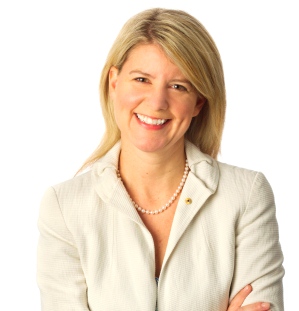Empowering Women: More Work To Be Done
Natasha Stott Despoja AM, Australia’s Ambassador for Women and Girls
 This year is a milestone International Women’s Day and a special year for the international women’s movement.
This year is a milestone International Women’s Day and a special year for the international women’s movement.
Twenty years ago, an unprecedented 17,000 participants and 30,000 activists arrived in Beijing for the opening of the Fourth World Conference on Women.
They had a clear purpose: gender equality and the empowerment of women, everywhere.
They produced the Beijing Declaration and Platform for Action which was adopted unanimously by 189 countries. It was a high point for international cooperation to secure commitments in language and intention for women’s rights.
We have not seen such an unequivocal statement of support for women and girls since.
We have made progress since the Fourth World Conference on Women. But, twenty years later, we have not achieved what was aspired to in 1995.
Globally, including in Australia, more than one in three women has been beaten, coerced into sex or abused in some other way.
Over the last 20 years, we have seen the percentage of women in parliaments around the world increase from 11.3 per cent to 22 per cent today. Only one in five parliamentarians is a woman. It’s simply not enough.
And on average, women are paid 10 to 30 per cent less than men. In Australia, the pay gap has reached its highest point since the commitments made at the Fourth World Conference on Women.
These statistics are sobering. But there are also many inspiring stories of change and progress – stories in which Australia is helping to play a part.
During Australia’s G20 Presidency, G20 Leaders committed to take steps to reduce the participation gap between men and women in G20 economies, creating the potential to bring a further 100 million women into the global workforce over the next 10 years.
As Australia’s Ambassador for Women and Girls, I have travelled to 17 countries across the Indo Pacific region and beyond, carrying the simple, indisputable message that global prosperity and gender equality are inextricably linked.
I have met with survivors of slavery and extreme abuse in places around the region. Most recently in Cambodia I met with young women at Hagar International, who, with Australian support, are building new lives.
In India, I have worked with young women to encourage their leadership aspirations.
Last month in Burma, I was discussing Australia’s commitment to the Women, Peace and Security agenda with women peace negotiators who are contributing to Burma’s peace processes.
The Pacific region is a particular priority as a place where Australia values its close partnerships with government and civil society to address high levels of violence against women and build regional efforts to promote women’s leadership and economic empowerment.
Last November, I travelled to Fiji and celebrated the International Day for the Elimination of Violence Against Women with vendors from the Lautoka Market who, with the support of Australia and UN Women, are now able to participate safely in their community’s economic life.
We all have a role to play in this work – women, men, girls and boys.
This year, more than ever, we acknowledge the perseverance of all who are working for gender equality. It can be a daunting to look back over the past 20 years and be reminded that, despite our best efforts, we’re far from where we need to be.
As a global community, we must remain committed to completing what we began in Beijing in 1995.
